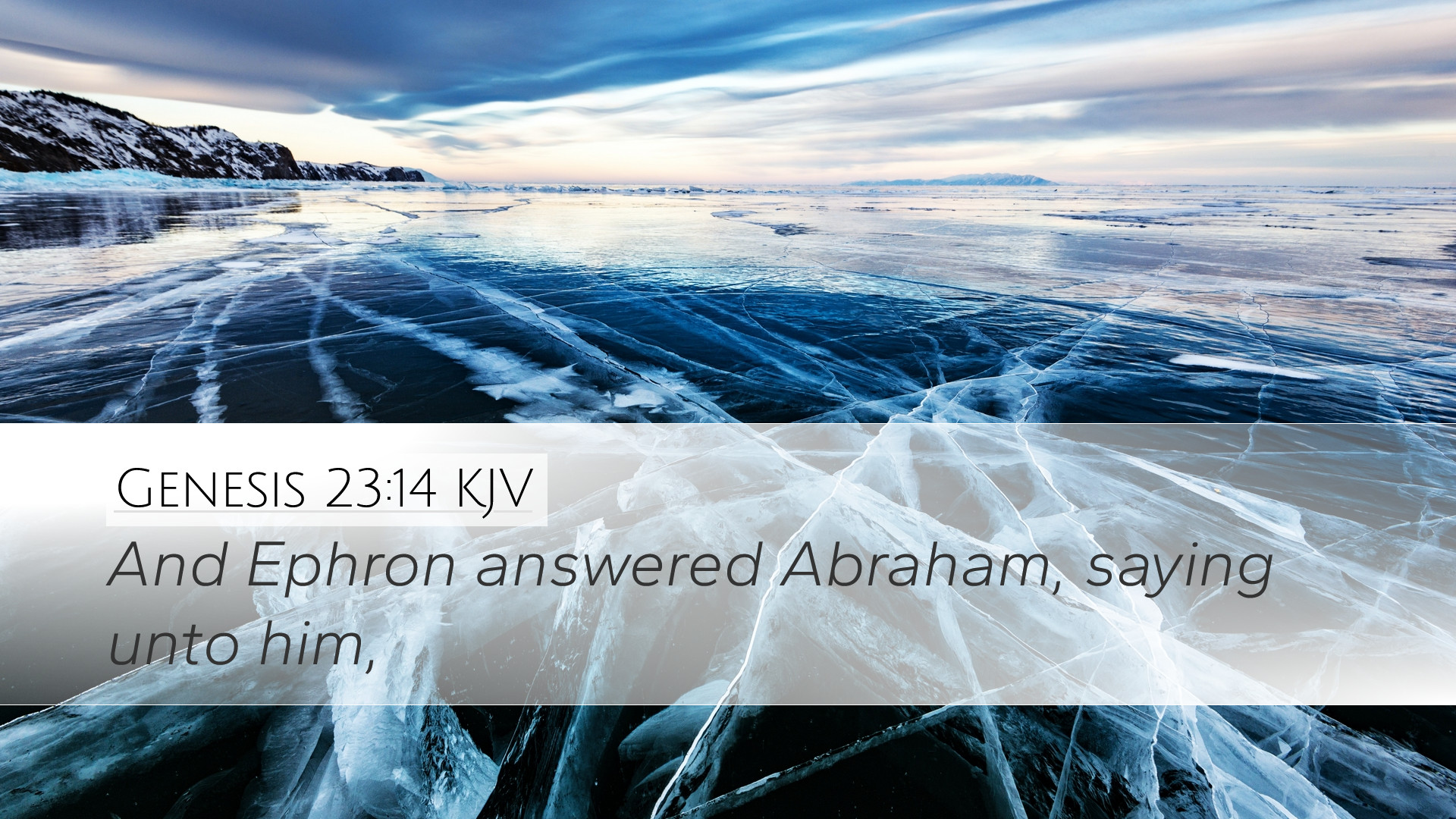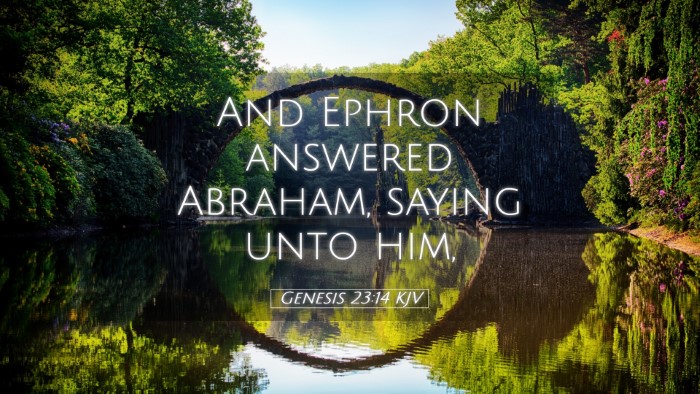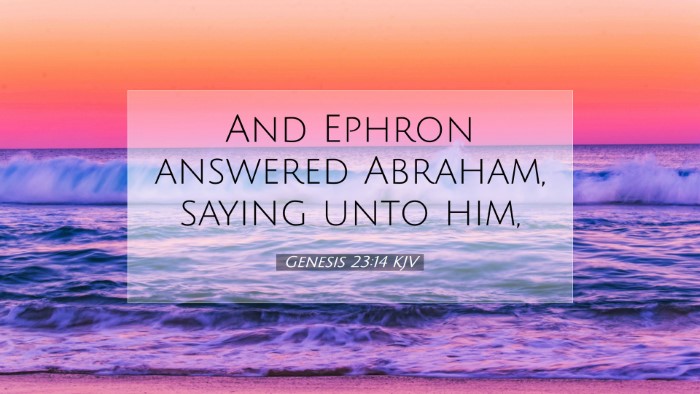Bible Commentary on Genesis 23:14
Genesis 23:14 states: "And Ephron answered Abraham, saying,". This verse sets the stage for a critical interaction between Abraham and Ephron, the Hittite. In this commentary, we will explore the deeper meanings and implications of this verse as derived from the insights of various public domain commentaries.
Context of the Verse
This segment occurs within the narrative of Abraham's mourning for Sarah following her death. Abraham seeks to secure a burial place for her, highlighting his status as a foreigner in the land of Canaan. The transaction represents not only a personal matter for Abraham but also a significant theological and cultural moment.
Historical Significance
According to Matthew Henry, this interaction illustrates the customs of the time concerning land transactions and burial practices. Ephron, being a Hittite, signifies the Canaanite peoples, which were to become synonymous with conflict in the history of Israel.
- Abraham's Status: Abraham identifies himself as a resident alien. This status emphasizes the transient nature of his situation, underlying themes of faith and promise in the broader narrative.
- Ephron's Role: Ephron's response indicates not just a casual transaction but a social agreement and mutual respect that existed between two differing ethnic groups.
Theological Insights
Albert Barnes emphasizes the depth of significance in Ephron's answer and the subsequent dialogue. While the plain reading suggests a straightforward purchase of land, it reveals deeper truths about God’s promises and covenant with Abraham.
- God's Provision: This moment symbolizes God's provision and faithfulness as Abraham seeks a permanent place amidst an uncertain future.
- Foreshadowing of Future Realities: The land transaction foreshadows the eventual possession of Canaan by Abraham’s descendants, which is a core promise of the Abrahamic covenant.
Character Reflections
Adam Clarke reflects upon the characters involved: Abraham and Ephron, noting their contrasting positions. Abraham, a man of faith, seeks a burial place, while Ephron represents the Canaanites who maintain a grip on the land. This dichotomy emphasizes God's unfolding plan for His people.
- Abraham's Faith: Despite being a nomadic person, Abraham's desire for a burial site is a profound expression of his faith in God's promises.
- Ephron's Generosity: Ephron, by initially offering the land for free, demonstrates a cultural gesture of respect, yet it ultimately leads to a negotiated sale that reflects the value of land ownership in that context.
Application for Believers
This verse, while initially appearing as a transaction, can yield multiple applications for contemporary believers. It invites pastors and theologians to consider:
- The Value of Burial Practices: The significance of honoring loved ones through proper burial can remind believers of the faith that accounts for life and death, reflecting on eternal promises.
- The Nature of Community Relations: How interactions with those outside the faith should be characterized by integrity and respect, as seen in Abraham’s dealings with Ephron.
- Faith in Uncertainty: Abraham’s act of purchasing land amidst uncertainty speaks to the faith leaders must exhibit in planning for future generations.
Conclusion
Genesis 23:14 is a profound moment laden with historical, theological, and personal implications. The interaction between Abraham and Ephron extends beyond mere land negotiation; it reflects themes of faith, community, God’s promises, and our eternal hope. As we study this passage, may we glean insights that inspire and challenge us to trust in God's unwavering plan for our lives and the lives of those we lead.


